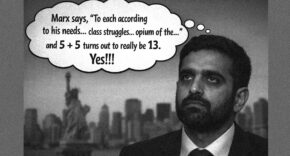For a growing group of tech titans and investors, aging looks like a solvable engineering problem. Over the past 25 years, more than $5 billion from ultrawealthy backers has flowed into longevity ventures, with average deal sizes rising to nearly $43 million this year. The money targets three fronts: reprogramming cells to a youthful state, treating age-related diseases, and near-term products like testing, supplements, and clinics. Enthusiasts say breakthroughs could add decades of healthy life. Skeptics point to scientific hurdles, safety risks, and slow approvals.
The hottest bet is cellular rejuvenation and reprogramming. Startups like Altos Labs and Retro Biosciences want to reset gene expression in old cells so tissues behave as if they were young. Others pursue drugs for diseases of aging, such as programs at BioAge Labs, or consumer routes like personalized testing and nutrition at Viome Life Sciences. Supporters see early wins in animals and rapid progress in tools like AI-guided drug discovery. Critics warn that human trials are sparse, off-target effects can be serious, and regulation remains steep.
Investors and founders talk in terms of mission and momentum. BioAge’s CEO Kristen Fortney asks, “A lot of people already make it past the age of 100 and they’re healthy. So why can’t that be achievable for all of us?” Naveen Jain says, “I want to make aging optional.” Vinod Khosla argues, “At 70, someone should feel like a 40-year-old.” Others offer caution. A recent analysis notes that cellular reprogramming has shown benefits in mice but has also produced tumors, and human trials are not yet underway. Some observers add that the only proven path today is the boring one: eat well, exercise, sleep, and stay socially active.
The scorecard so far
The field has raised more than $12.5 billion across 200-plus startups and nonprofits. There have been setbacks. Unity Biotechnology raised $355 million and was delisted before announcing a plan to dissolve. BioAge went public in 2024, halted one obesity drug for safety concerns, then launched a new trial this year. The FDA does not treat aging as a disease, and approval timelines are long. As Methuselah Foundation’s David Gobel puts it, “For a biotech, you’re talking $1 billion and 12 to 15 years.”
Profiles of the billionaire backers
Peter Thiel
Peter Thiel’s longevity portfolio spans nearly a dozen companies that collectively raised more than $700 million through his venture firm and a nonprofit foundation he backed. In 2021 he co-founded NewLimit with Coinbase’s Brian Armstrong to pursue ways to reverse cellular aging. He also gave $1 million to the Methuselah Foundation, a nonprofit aiming to make 90 the new 50 by 2030. Thiel has spoken openly about cryonics, saying, “I don’t necessarily expect it to work,” yet he funds efforts that could stretch healthspan by tackling aging at its cellular roots.
Sam Altman
Sam Altman placed a personal bet of $180 million on Retro Biosciences, which aims to rejuvenate and reprogram aging cells and add 10 “good” years to human life. Retro’s CEO, Joe Betts-LaCroix, comes from a lineage of ambitious bio projects and helped build a community of longevity enthusiasts that connected scientists and investors. Altman’s wager embodies the sector’s science-heavy, founder-led approach. Rather than search for a single fountain of youth, Retro is pursuing multiple programs in cell reprogramming and plasma-inspired therapeutics, counting on measurable biomarkers to show real gains in human healthspan.
Jeff Bezos
Jeff Bezos has invested hundreds of millions of dollars into Altos Labs, which launched in 2022 and quickly raised $3 billion to pursue cellular rejuvenation. Altos wants to extend the period of life spent free from disease by returning cells to a youthful state. Bezos also backed Unity Biotechnology, which targeted cellular senescence but suffered a high-profile trial failure in 2023 and later setbacks that illustrate the risks in this field. His strategy backs big-science platforms with substantial funding, betting that early success in animals can be translated into safe human therapies over time.
Vinod Khosla
Through Khosla Ventures, Vinod Khosla is one of longevity’s most active investors, with portfolio companies collectively raising more than $1 billion. He has backed BioAge Labs, which develops drugs for diseases of aging, and Viome Life Sciences, which sells at-home tests and personalized nutrition recommendations. Khosla’s public goal is simple and bold: “At 70, someone should feel like a 40-year-old.” His thesis spreads bets across core science, clinical programs, and data-rich consumer health tools, aiming to convert advances in biology and computation into treatments that meaningfully extend healthspan.
Eric Schmidt
Former Google CEO Eric Schmidt joined the cap table of NewLimit, the cell-reprogramming startup co-founded by Brian Armstrong with investment from Peter Thiel’s network. NewLimit focuses on reversing cell aging, and its latest fundraising included participation from funds associated with several billionaires. Schmidt’s involvement reflects a broader trend of tech leaders moving from software to biology, where they believe platform thinking, data, and capital can unlock breakthroughs. The bet is that precise control of gene expression and epigenetic state can rebuild youthful function in tissues, opening a pipeline of anti-aging therapies.
Joe Lonsdale
Palantir co-founder Joe Lonsdale has invested in NewLimit and, through his firm 8VC, backed Altos Labs. His strategy supports both early research in cellular rejuvenation and ambitious companies built to translate that research into therapies. Lonsdale’s participation came alongside at least nine billionaire investors or their funds in NewLimit’s raise, signaling confidence in reversing cellular aging as a tractable path to longer healthspans. The portfolio approach spreads risk across platform science and clinical development, while leaning on the view that aging biology can be engineered with the same rigor applied to data systems.
Naveen Jain
Entrepreneur Naveen Jain founded Viome Life Sciences after his father died of pancreatic cancer, investing $30 million of his own money. Viome has raised more than $230 million and sells at-home tests with AI-guided nutrition and supplement recommendations. Jain’s stated aim is sweeping: “I want to make aging optional.” Viome’s backers include Marc Benioff and Khosla Ventures, and the company represents the consumer-facing edge of longevity, where large data sets, personalized plans, and recurring testing are used to slow or reverse harmful trajectories long before disease takes hold.
Vitalik Buterin
Ethereum co-founder Vitalik Buterin contributed more than $13.6 million in 2021 to the Methuselah Foundation, which champions moonshot ideas like organ preservation and regenerative medicine to “make 90 the new 50 by 2030.” Methuselah’s portfolio includes efforts such as Leucadia Therapeutics, targeting brain waste-clearance to reduce Alzheimer’s risk, and X-Therma, which pursues subzero organ preservation for longer transport windows. While Buterin has not positioned himself as a traditional biotech investor, his large donation amplified nonprofit routes to longevity, where prizes and grants aim to de-risk early research and catalyze commercial follow-on.
There is real progress and real risk. Cellular reprogramming has produced rejuvenation effects in mice, including faster skin repair and improved kidney function, but tumors have also appeared and human trials have yet to begin. Drug programs for aging-linked diseases show promise, yet failures like Unity’s remind investors that biology rarely moves in straight lines. Regulators do not treat aging as a disease, and new drugs often take 12 years to approve. For now, lifestyle remains the surest lever. Still, with billions committed, the push to turn youthful biology into medicine is not slowing.





